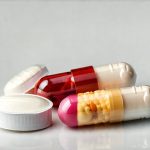Introduction
We are constantly bombarded with health advice, often conflicting in its nature. One seemingly straightforward recommendation – drink plenty of water – has recently been subject to scrutiny, sparking questions about whether even beneficial practices can be taken too far. While adequate hydration is undeniably crucial for overall well-being, supporting everything from cognitive function to kidney health, a growing awareness of the complex ecosystem within our gut—the microbiome—has led many to wonder if excessive water intake could inadvertently disrupt this delicate balance. The idea isn’t necessarily about dehydration being preferable; it’s about considering whether overhydration might wash away beneficial bacteria alongside waste products, potentially causing unintended consequences for digestive health and immune function.
This concern stems from the understanding that our gut microbiome is profoundly influenced by many factors including diet, stress levels, and yes, even hydration. The sheer volume of water we consume impacts the transit time of food through our digestive system, and a faster transit can theoretically reduce the opportunity for beneficial bacteria to flourish. But the relationship is far more nuanced than simply ‘more water equals fewer good bugs.’ It’s about understanding how different levels of hydration affect gut motility, bacterial composition, and overall microbial diversity. This article will explore this complex interplay between water intake and our gut microbiome, aiming to provide a balanced perspective on whether drinking too much water can indeed “flush out” the good bacteria we rely on.
The Gut Microbiome and Hydration: A Delicate Balance
The human gut microbiome is an incredibly diverse community of trillions of microorganisms—bacteria, fungi, viruses, and other microbes—living in our digestive tract. These aren’t simply passengers; they actively participate in vital bodily functions. They aid in digesting food, synthesizing vitamins (like K and B vitamins), regulating the immune system, and even influencing mood and mental health. Maintaining a healthy microbiome – characterized by diversity and abundance of beneficial bacteria – is increasingly recognized as essential for overall well-being. Disruptions to this balance, known as dysbiosis, have been linked to various health issues including inflammatory bowel disease, allergies, obesity, and even neurological disorders.
Hydration plays a critical role in gut health because it directly impacts gut motility—the rate at which food moves through the digestive system. Water softens stool, making it easier to pass and preventing constipation. However, excessive water intake can accelerate this process, potentially shortening the time beneficial bacteria have to interact with undigested food and establish themselves within the gut. This rapid transit could theoretically lead to a reduction in bacterial diversity and an imbalance favoring less desirable microbes. It’s important to note that the effect isn’t uniform; individual responses vary significantly based on factors like diet, genetics, and pre-existing microbiome composition.
The key isn’t necessarily about reducing water intake overall but rather finding a balance. Chronic dehydration negatively impacts gut health by leading to constipation and altering microbial communities, while excessive hydration might disrupt bacterial adhesion and diversity. A healthy gut thrives on consistency – regular bowel movements with well-formed stool—and that often requires individualized hydration strategies tailored to specific needs. Finding the ‘sweet spot’ for your individual body is crucial.
Factors Influencing Water’s Impact on Gut Bacteria
The effect of water intake on the gut microbiome isn’t a simple equation; several factors modulate this relationship:
- Dietary Fiber: A diet rich in dietary fiber acts as prebiotic food for beneficial bacteria. Fiber slows down digestion, giving microbes more time to ferment and produce short-chain fatty acids (SCFAs) – compounds vital for gut health and overall well-being. Adequate fiber intake can mitigate the potential negative effects of faster transit times caused by higher water consumption.
- Electrolyte Balance: Excessive water intake without adequate electrolyte replacement can lead to hyponatremia (low sodium levels), which can disrupt various bodily functions, including digestion. Electrolytes are crucial for maintaining gut motility and microbial balance. Consuming electrolytes alongside water helps maintain proper fluid balance and minimizes potential disruptions.
- Individual Variations: Each person’s digestive system operates differently. Factors like age, activity level, climate, and underlying health conditions influence hydration needs and the microbiome’s response to water intake. What constitutes “too much” water varies significantly from one individual to another.
Assessing Your Hydration Needs & Gut Health
Determining your optimal hydration level isn’t about adhering to a blanket rule like “eight glasses of water per day.” It requires paying attention to your body and adjusting intake based on individual factors:
- Monitor Urine Color: Pale yellow urine generally indicates good hydration, while dark yellow suggests dehydration.
- Listen to Your Thirst: Drink when you feel thirsty; it’s a natural signal from your body. However, don’t rely solely on thirst, especially as we age or during physical activity.
- Consider Your Activity Level & Climate: Increase water intake during exercise and in hot weather.
- Evaluate Bowel Movements: Consistent, well-formed bowel movements are a sign of healthy gut function and adequate hydration.
Regarding assessing gut health, while direct testing (stool analysis) can provide detailed information about your microbiome composition, it’s not always necessary or accessible. Paying attention to digestive symptoms—bloating, gas, constipation, diarrhea—can offer valuable clues. A holistic approach that combines mindful hydration with a fiber-rich diet and regular physical activity is often the most effective way to support gut health.
Supporting Gut Health Alongside Hydration
Beyond simply managing water intake, several strategies can actively promote a healthy microbiome:
- Probiotic-Rich Foods: Incorporate fermented foods like yogurt, kefir, sauerkraut, kimchi, and kombucha into your diet. These contain live microorganisms that can replenish beneficial bacteria.
- Prebiotic Foods: Consume foods rich in prebiotics—onions, garlic, asparagus, bananas, oats—to nourish existing gut microbes.
- Limit Processed Foods & Sugar: These can negatively impact microbial diversity and promote the growth of harmful bacteria.
- Stress Management: Chronic stress can disrupt the microbiome. Practice stress-reducing techniques like meditation, yoga, or spending time in nature.
- Antibiotic Use Judiciously: Antibiotics kill both good and bad bacteria. Use them only when absolutely necessary and under the guidance of a healthcare professional.
In conclusion, while it is theoretically possible for excessive water intake to disrupt gut health by accelerating transit time and potentially reducing bacterial diversity, it’s rarely a concern for most people. The relationship between hydration and the microbiome is complex and influenced by numerous factors. A balanced approach that prioritizes adequate hydration alongside a fiber-rich diet, electrolyte balance, and mindful attention to individual needs is far more likely to support a thriving gut microbiome and overall well-being. Focusing on holistic health rather than fixating on isolated elements – like water intake alone – is the key to long-term digestive health.





















